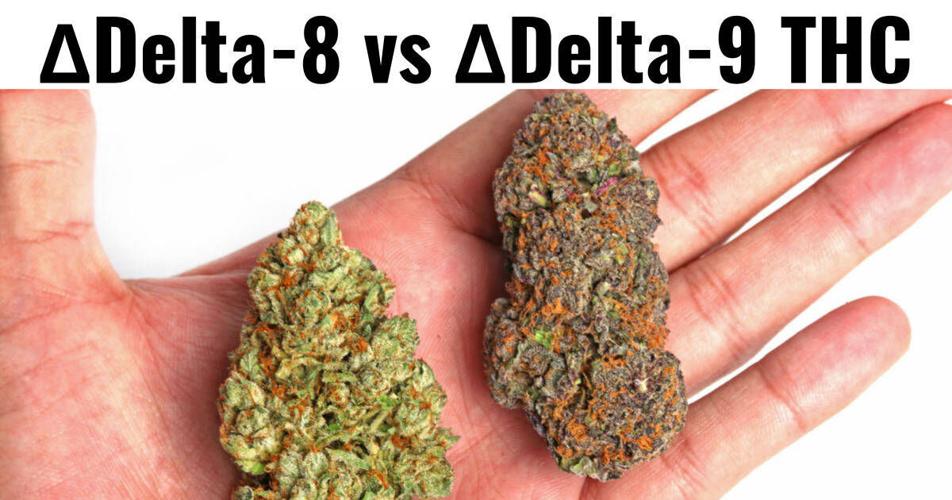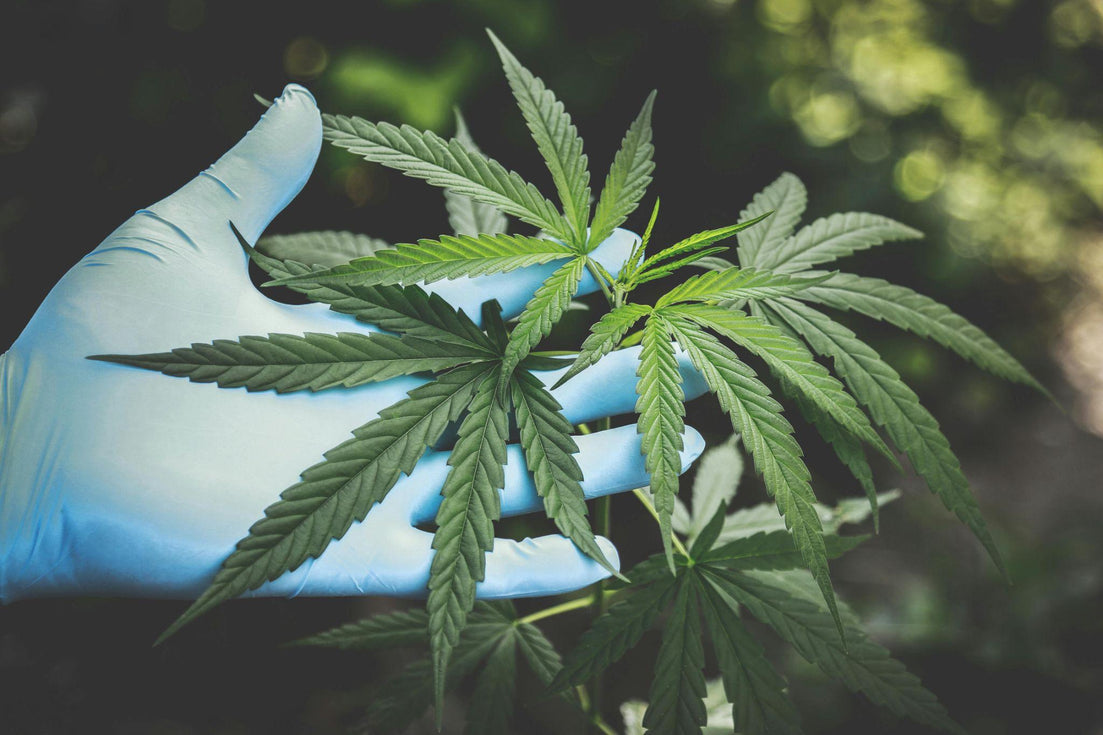Your cart is currently empty.

Are you curious about the differences between delta 9 vs delta 8 THC? Do you want to gain insight into the legality and physiological effects of these two compounds? Delta 9 vs Delta 8 THC is an important topic for anyone looking into natural alternatives for managing symptoms such as pain, anxiety, or insomnia. In this article we will explore the similarities and differences of both compounds in terms of chemical structure, legality issues and pros & cons so that readers can make a well informed decision when it comes to using either one. Read on to learn more.
TABLE OF CONTENTS:
-
What is Delta-8 THC?
-
History:
-
-
What is Delta-9 THC?
-
Definition:
-
History:
-
-
Differences Between Delta 9 and Delta 8 THC
-
Pros & Cons of Using Delta 9 THC and Delta 8 THC
-
Health Benefits of Using Delta 9 THC and Delta 8 THC:
-
-
Conclusion
-
Summary of Key Points:
-
-
FAQs in Relation to Delta 9 vs Delta 8
-
Is there a big difference between Delta 8 and Delta 9?
-
Do people prefer Delta 9 or Delta 8?
-
Is Delta 9 safer than Delta 8?
-
Is Delta 9 or Delta 8 better for anxiety?
-
-
Conclusion
WHAT IS DELTA-8 THC?
Delta-8 THC, a cannabinoid from cannabis and hemp plants, is related to the better known Delta-9 variety. It differs from its cousin by having an additional double bond at the 8th carbon atom of its molecular structure. This difference gives Delta-8 a slightly different effect than Delta-9 when consumed.
Delta-8 THC (Δ⁸THC), a structural variation of the cannabinoid tetrahydrocannabinol, is characterized by an additional double bond on its 8th carbon atom. As such, it produces milder psychoactive effects than those produced by delta 9 THC, which makes it attractive for therapeutic use.
History:
The discovery of delta 8 THC dates back to 1940 when Raphael Mechoulam first isolated this compound from hashish resin samples collected in Israel during World War II. Since Mechoulam's initial discovery, exploration cannabis research into delta 8 THC has been on the rise due to its potential medicinal advantages and comparatively low levels of toxicity when compared with other cannabinoids like CBD or delta 9 THC.
Delta-8 THC, a variant of cannabis with potential advantages, may not be legally accessible in some states. With this in mind, it's important to understand the differences between Delta-9 THC and Delta-8 THC before making any decisions about which one may be right for you.
Key Takeaway: Delta-8 THC, with its distinctive double bond on the 8th carbon atom of its molecular structure, is a milder form of Delta-9 THC and has been studied for potential therapeutic benefits since 1940. Its discovery dates back to 1940 when Raphael Mechoulam first isolated this compound from hashish resin samples collected during World War II; since then research into delta 8's therapeutic benefits and low levels of toxicity have increased over time.
WHAT IS DELTA-9 THC?
Delta-9 THC is a naturally occurring cannabinoid found in the cannabis plant. It is one of the most abundant and psychoactive cannabinoids, responsible for producing many of the effects associated with marijuana use. Delta-9 THC binds to both CB1 and CB2 receptors in the brain, resulting in its intoxicating effects.
Definition:
Delta-9 tetrahydrocannabinol (THC) is an organic compound found within cannabis plants that produces psychotropic effects when consumed or inhaled. It acts on specific cannabinoid receptors located throughout our bodies, primarily within our brains, leading to euphoria and other mind-altering sensations.
History:
The first isolated instance of delta 9 THC was reported by Israeli scientist Raphael Mechoulam in 1964 as part of his groundbreaking research into the chemical structure of cannabis compounds. Since its discovery in 1964, researchers have conducted extensive research on delta 9 THC to investigate the potential therapeutic advantages it may offer for treating various ailments such medical conditions such as chronic pain and anxiety.
It is important to check your state's laws before consuming any form of delta 9 THC product so you can remain compliant with local regulations regarding marijuana use.
Delta-9 THC, a psychoactive substance located in cannabis plants with an extensive history of use, has dissimilar legal statuses around the world. Despite their similar names and chemical structures in marijuana plants, Delta 8 and Delta 9 have distinct differences which will be discussed further in the next section.
DIFFERENCES BETWEEN DELTA 8 AND DELTA 9 THC
Delta 8 and Delta 9 THC both have different chemical structures, with the double bond in each located on a different carbon atom. Both derivatives of THC possess a double bond, however the distinction lies in their atomic arrangement. The double bond on Delta 8 is located on the eighth carbon atom, while it's located on the ninth carbon atom for Delta 9. This slight difference in molecular structure gives them different effects when ingested or inhaled.
Delta-8 has been touted to offer more medical benefits than delta-9, including better pain relief increased appetite, and inflammation alleviation through its enhanced ability to interact with specific receptors in the endocannabinoid system.
The differences between Delta 8 and Delta 9 THC are vast, but they both offer potential benefits to those seeking natural alternatives for managing symptoms. It is essential to seek medical advice prior to using either Delta 8 or Delta 9 THC, despite understanding the advantages and disadvantages of each.
PROS & CONS OF USING DELTA 8 AND DELTA 9 THC
The use of Delta 8 THC and Delta 9 THC can provide a range of potential benefits to individuals looking for natural alternatives for managing symptoms such as pain, anxiety, and insomnia. Nevertheless, it is essential to take into account the potential hazards linked with utilizing these cannabis items prior to determining if they are suitable for you.
Benefits of Using Delta 9 THC and Delta 8 THC:
Both forms of THC have been found to offer therapeutic effects on the body by interacting with cannabinoid receptors in the brain and throughout the nervous system. Research indicates that by engaging with cannabinoid receptors in the brain and throughout the nervous system, both forms of THC may be capable of reducing inflammation, pain relief, enhancing sleep quality, mitigating stress levels and providing calming effects. Additionally, research suggests that both forms may help reduce nausea caused by chemotherapy treatments. For those seeking an alternative form of treatment without psychoactive side effects like those seen with delta-9 THC products (i.e., marijuana), delta-8 may be a viable option due to its lower psychotropic potency than delta-9 cannabis products while still offering many similar therapeutic benefits.
Overall, the use of Delta 9 THC vs Delta 8 THC can offer a variety of potential benefits for managing symptoms such as pain, anxiety, and insomnia. Nonetheless, it is important to weigh the potential benefits against any associated risks before incorporating Delta 8 and Delta 9 THC into one's wellness routine. In summary, Delta 8 and Delta 9 THC have potential benefits for managing symptoms such as pain, anxiety, and insomnia; however, the associated risks should be considered before using them.
Key Takeaway: Delta 9 THC and Delta 8 THC offer many potential benefits for those looking to manage symptoms such as pain, anxiety, and insomnia without the psychotropic side effects of marijuana. While both forms synthetic cannabinoids interact with cannabinoid receptors in the brain and nervous system to reduce inflammation, relieve pain, improve sleep quality, reduce stress levels etc., delta-8 is a viable option due its lower psychoactive potency than delta-9 products.
CONCLUSION
Summary of Key Points:
For centuries, both of these THC forms have been employed to address various ailments, such as discomfort, unease and difficulty sleeping. Whereas Delta 9 has a higher potency and remains illegal in most places, Delta 8 is slightly less potent yet currently legal in many states. Delta 8 has a slightly lower potency than Delta 9 and may provide more mild adverse effects on the body. Additionally, it is currently legal in many states while Delta 9 remains illegal in most places. It is therefore important to be aware of the distinctions between them in order to choose which one will best meet your requirements.
FAQS IN RELATION TO DELTA 9 VS DELTA 8
Is there a big difference between Delta 8 and Delta 9?
Yes, there is a big difference between Delta 8 and Delta 9. Delta 8 THC is a variant of delta-9-tetrahydrocannabinol (THC) with an altered double bond configuration, the difference being that Delta 8 has its double bonds at the eighth carbon atom instead of the ninth. The main distinction between these two cannabinoids lies in their double bond locations: while delta-9 has its double bonds at the ninth carbon atom, delta-8's are located one place earlier at the eighth carbon atom. This subtle change results in different pharmacological effects for each compound—Delta 8 being slightly less in mild psychoactive effects than Delta 9. Due to the slight alteration in double bond positioning, it is simpler to source CBD with minor amounts of Delta 8 than those higher in Delta 9 THC that remain within legal parameters.
Do people prefer Delta 8 or Delta 9?
It is difficult to definitively answer the question of whether people prefer Delta 8 or Delta 9 without conducting a survey. Although anecdotal evidence and user reviews suggest that both Delta 8 and Delta 9 cannabinoids may be beneficial for managing various symptoms, further research is needed to determine which type works best for each individual. Though individual preference may vary, it appears that both Delta 8 and Delta 9 offer potential therapeutic benefits for those suffering from pain, anxiety, or insomnia. Ultimately, further investigation is necessary to discern which cannabinoid type yields the most favorable results for each individual's particular circumstances.
Is Delta 9 safer than Delta 8?
Delta 9 and Delta 8 are both forms of cannabinoids found in the cannabis plant. While they share similar chemical structures, their effects can vary depending on dosage and individual tolerance. Delta 9 is typically considered to be more powerful than Delta 8, and can potentially cause negative reactions like nervousness or fear when taken in large amounts. On the other hand, lower doses of Delta 8 may provide some therapeutic benefits with fewer risks associated with them compared to those of Delta 9. Before taking any cannabinoid, it is essential to speak with a physician in order to determine which one would be most suitable for you given your health background and needs.
Is Delta 8 or Delta 9 better for anxiety?
It is difficult to definitively answer which of Delta 8 or Delta 9 is better for anxiety without taking into account the individual's unique physiology, lifestyle and other factors. However, research has suggested that both compounds have potential therapeutic benefits in treating anxiety. In general, Delta 8 may be more effective than Delta 9 due to its higher affinity for cannabinoid receptors located throughout the body and brain. Additionally, some studies suggest that delta-8 THC may also possess anti-anxiety properties as well as neuroprotective effects when compared with delta-9 THC. It is thus essential to seek medical advice before selecting the most suitable compound.
What is a delta-9 high like?
Delta9 is a powerful product Delta 9. Compared with Delta 3. 7. Some think it's about two times stronger overall. Side effects are also more substantial with Delta. 9. These include paranoia, anxiety, mania, impaired motor skills, and impulsiveness.
Is delta-9 the strongest?
Delta9 has the strongest strength, Delta10 has a milder flavor, and Delta 8 (yes you've already thought about it) sits in between. Unlike chemical formulas, these compounds each have slightly different structures that cause slightly distinct therapeutic effects.
Why is delta-9 cheaper than delta-8?
It's a good thing Delta 8 takes more processing in isolation & extraction than Delta 9. Delta 8 has very little effect on medical cannabis, and hemp producers. Some firms sell Delta 8, therefore the laws of supply & demand raise the price.
Is delta-8 or delta-9 better for sleep?
As stated earlier, delta-9 has more power than delta-8. In addition, it carries a higher dose THC. Even though Delta 8 has been shown to have a longer sedentary life, it may help reduce stress and anxiety.
CONCLUSION
Delta-8 is a more mild form of the compound while Delta-9 has stronger effects. It is imperative to be aware of the distinctions between delta 8 and delta 9 THC in terms of molecular structure, legality, advantages & drawbacks prior to making a well-informed determination regarding which one could be most suitable for your requirements. Ultimately though it comes down to personal preference when choosing between delta 9 vs delta 8 products.
Discover the differences between Delta 8 and Delta 9 CBD, and learn how to make informed decisions when selecting products for your needs. Take advantage of our expert advice on choosing the right product for you today!



